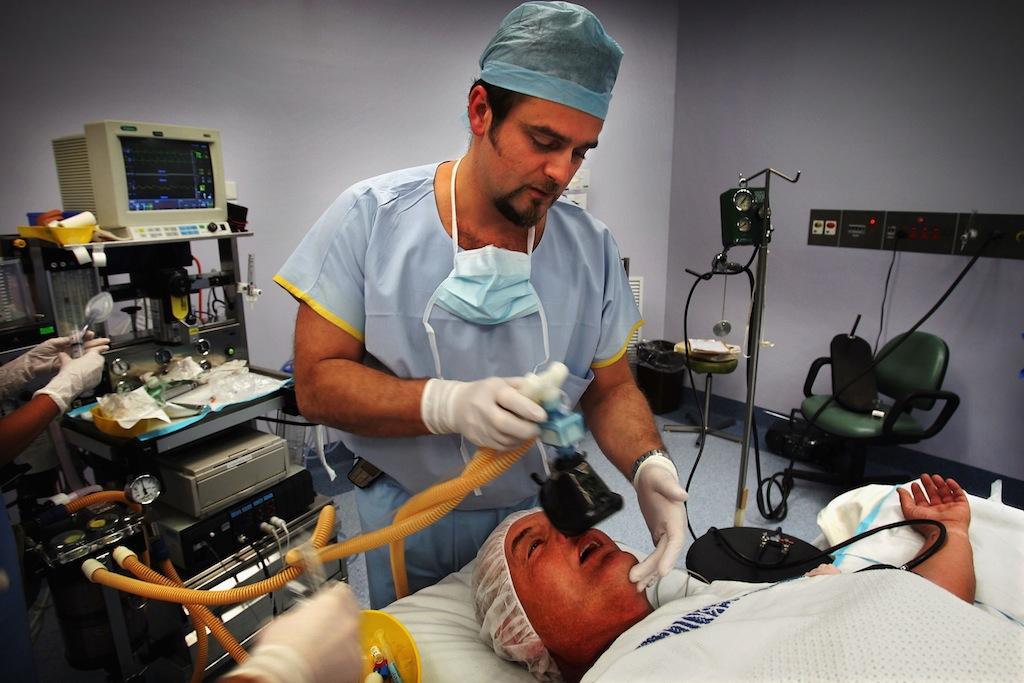Japanese scientist fabricated 172 papers over 19 years
Anesthesiologist Martin Bohm is pictured at work in the operating theatre at Ryde Hospital September 7, 2005 in Sydney Australia. Japanese anesthesiologist Yoshitaka Fujii has been found to have fabricated 172 papers.
Japanese anesthesiologist Yoshitaka Fujii was investigated by a committee in Japan and found to have fabricated 172 papers over the past 19 years, Science Insider reported.
It is the highest number of fabricated papers since German anesthesiologist Joachim Boldt was stripped of his professional credentials in 2010 for fabricating 90, Popular Science reported.
Fujii fabricated patients, falsified medication administrations, and forged the signatures of supposed co-researchers who had no idea they were being affiliated with the studies, according to the investigation report by the Japanese Society of Anesthesiologists.
More from GlobalPost: New Yorker writer Jonah Lehrer accused of recycling old material (UPDATED)
“It is as if someone sat at a desk and wrote a novel about a research idea,” the committee wrote in their June 29 report, which traced the scientist's made-up results back to 1993 and though his time at three different institutions, according to Slate Magazine.
Suspicion about Fujii's findings began March 8, when an analysis in the journal "Anaesthesia" first questioned his research, according to Science Insider.
A month later, 23 journal editors publicly requested that the seven Japanese institutions named in the papers investigate the anesthesiologist.
The Society undertook the investigation because "it would have been difficult for any one institution to clarify what happened," says Koji Sumikawa, an anesthesiologist at Nagasaki University who headed the investigation, according to Science Insider.
Sumikawa says the summary is being sent to the 23 editors as well as to the institutions involved, who will then be responsible for issuing retractions, according to Insider.
More from GlobalPost: Romanian Prime Minister Victor Ponta accused of plagiarizing PhD thesis
"Fortunately, nothing he published was regarded as very important, which is how his vault of fabricated material went undetected for decades," Slate reported.
Science Insider was unable to reach Fujii, who requested that the society withhold his contact information from the media.
The story you just read is accessible and free to all because thousands of listeners and readers contribute to our nonprofit newsroom. We go deep to bring you the human-centered international reporting that you know you can trust. To do this work and to do it well, we rely on the support of our listeners. If you appreciated our coverage this year, if there was a story that made you pause or a song that moved you, would you consider making a gift to sustain our work through 2024 and beyond?
